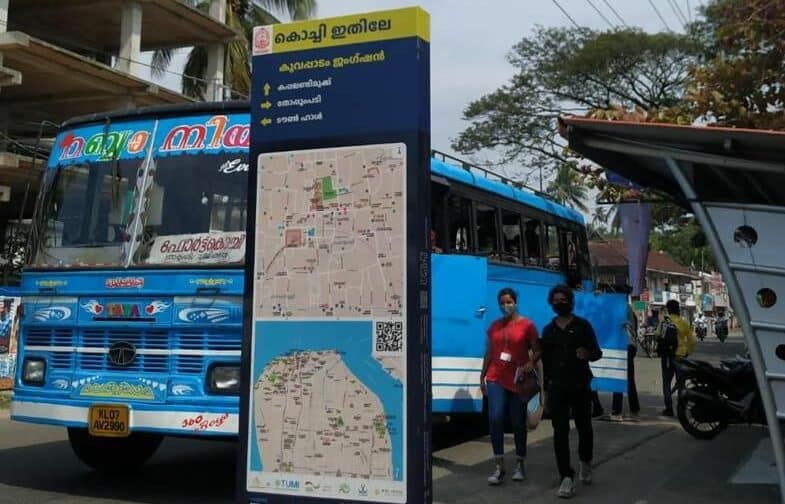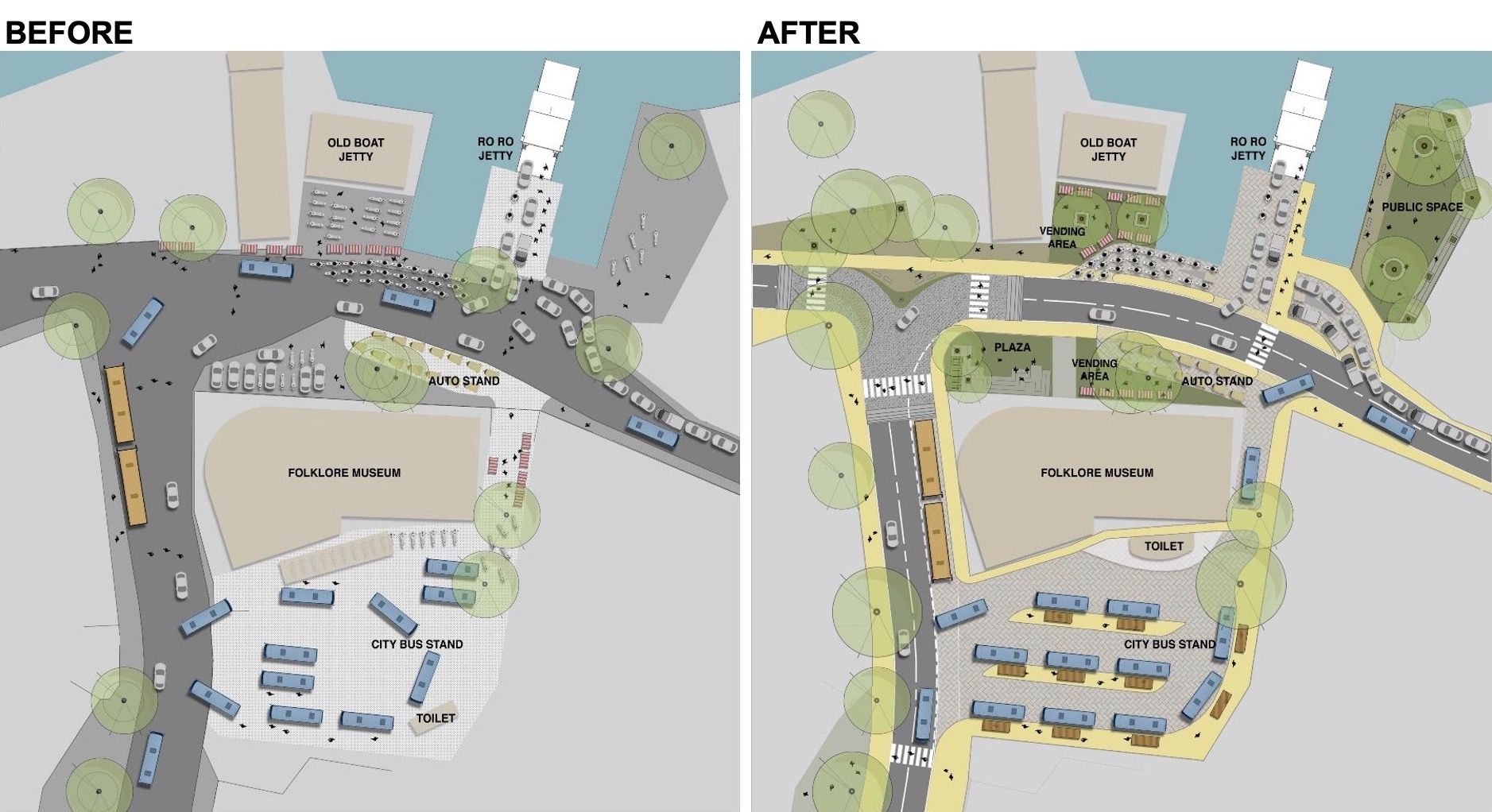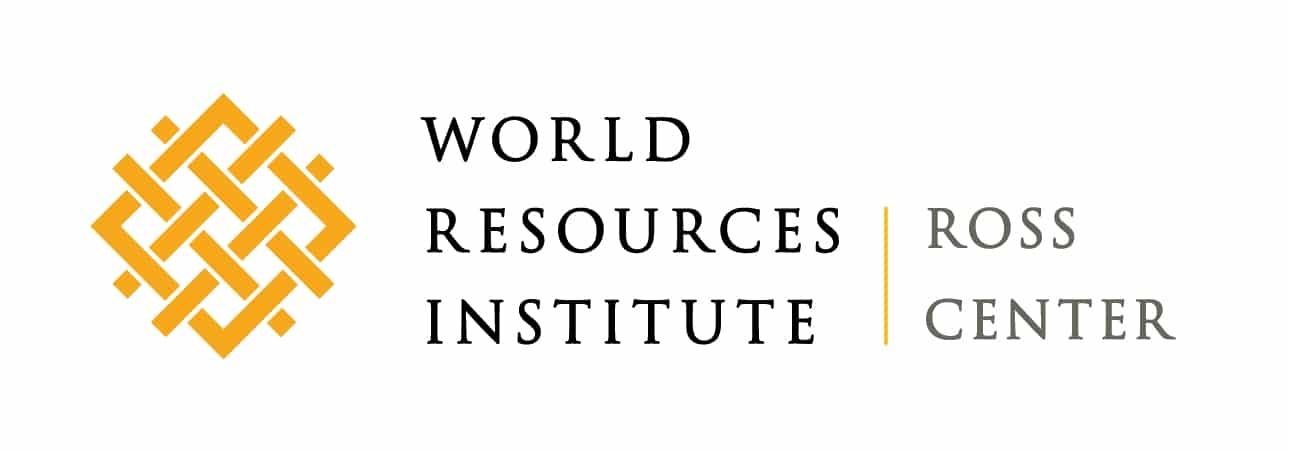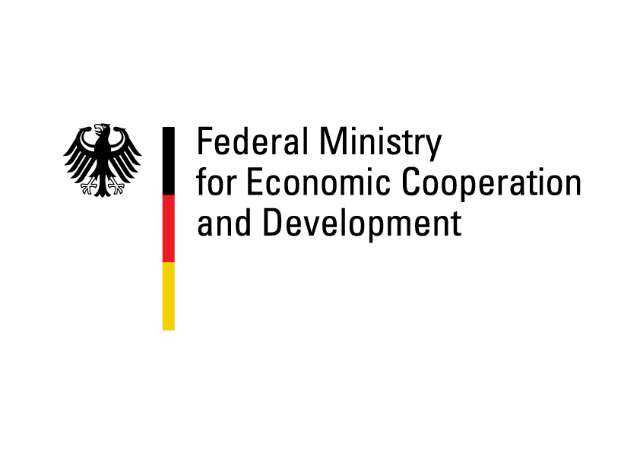Re-imagining Fort Kochi
The project aims to create enhanced accessibility of the Ro-Ro jetty node, which is the main node of Fort Kochi Island in India. By improving traffic flow and coordination between different modes (public and private), including NMT, the project will show how reduced vehicular-pedestrian conflicts and enhanced walkable conditions for locals and tourists can be beneficial for all.








